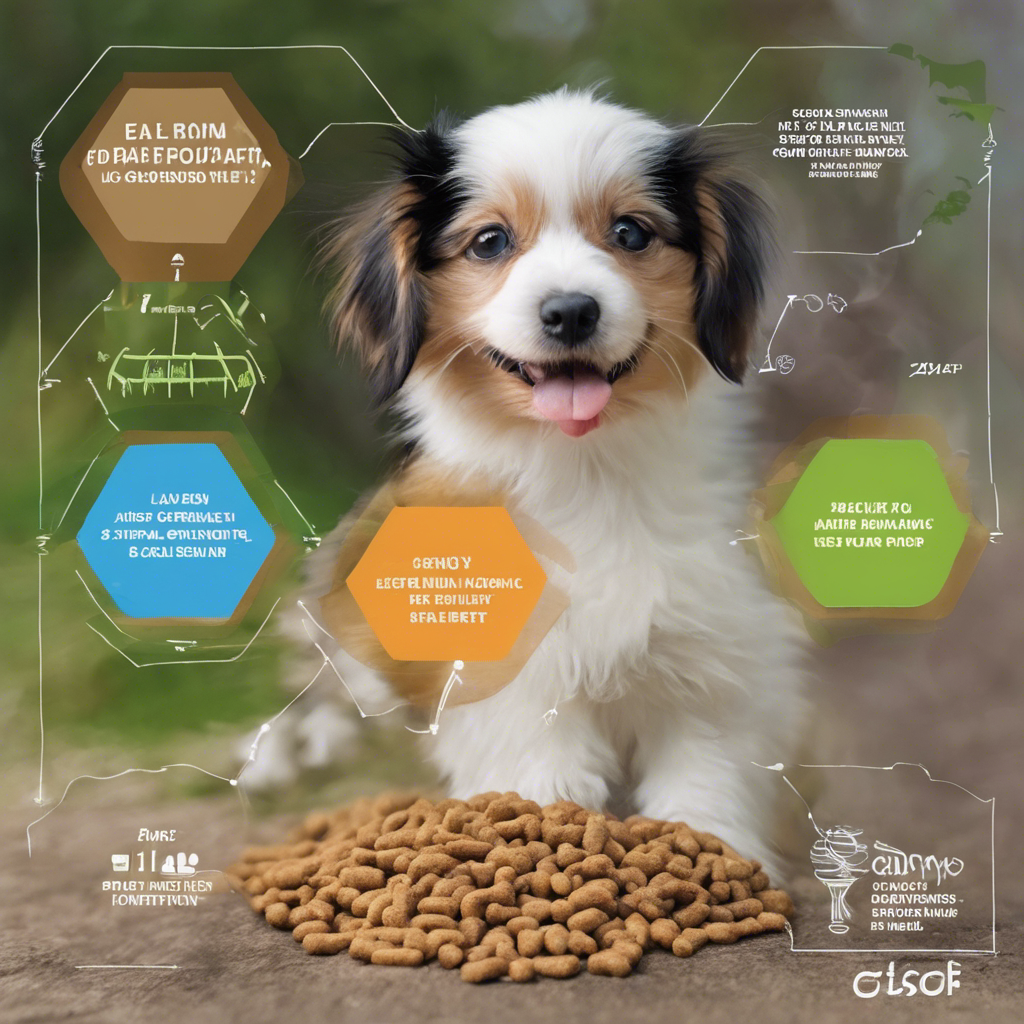Organic animal feed and legislation: a strictly regulated feed paradise
Have you ever thought about the fact that our four-legged friends also leave their ecological footprint? That's right! We're talking about organic pet food and the associated legislation, which can't exactly hide behind a bag of chews. This area is strictly regulated, and if you don't dance with the rules, you can quickly end up on the dog's back. But don't worry, in this post we dig deeper than a dachshund for the truth and shed light on the laws that govern the production, labelling and sale of Organic animal feed steer. Follow us into the world of healthy chewy strips, vegan dog biscuits and the legal texts that make it all possible.
Why organic pet food at all?
Before we dive into the depths of legislation, let's briefly clarify why Organic animal feed is a thing at all. Quite simply, because our furry friends are worth it! Just like with us humans, a healthy and sustainable diet makes a huge difference. Not only does it benefit the health of our animal companions, but also the environment. Fewer pesticides, herbicides and artificial additives mean less strain on Mother Earth. A real win-win, right?

The be-all and end-all: the EU Organic Regulation
- The foundation stone: With the so-called EU Organic Regulation, the EU lays the foundation for all those who want to play the organic game. This regulates what is to be labelled as organic and which regulations must be observed.
- Exactly: For animal feed, this means that certain guidelines must be adhered to in terms of feed cultivation, processing and even storage. No mean feat, but important for the quality and sustainability of the feed.
- Label love: One of the most important results of this regulation is the EU organic label. A green leaf on a white background that gives consumers the assurance that they are holding genuine organic goods in their hands.
Keep an eye out for labelling
Now it's getting bureaucratic: the labelling of organic animal feed is a chapter in itself. But don't panic, we'll bring light into the darkness. The magic word is transparency. Manufacturers of organic animal feed must state exactly what is in it and how it was produced. Every single grain and every organic pea, no matter how small, must be traceable. Sounds time-consuming, and it is. But it's worth it! Because this is the only way we can be sure that we are serving our furball the best of the best.
International vs. national: a regulatory jungle
Well, you might think that with the EU regulation in your pocket, everything is fine. But wait a minute! There are also additional regulations and standards at national level that need to be observed. Each country has its own ideas about what organic means and how it should be implemented. A jungle of regulations that can be a challenge for manufacturers, but ultimately serves to protect consumers. The good news is that, on the whole, everyone is pulling in the same direction and the goal is always the high quality and purity of organic animal feed.
What does this mean for our food bowl?
Now that we've taken a look behind the scenes of organic pet food and legislation, the question is: what does all this mean for our food bowl? In short, a lot of good things! Here are a few crisp points:
- Higher quality: Stricter legislation leads to higher quality standards. For the sake of our animals, just right!
- Transparency: Labelling requirements provide clarity. No more nasty surprises when buying feed.
- Environmentally friendly: By focussing on sustainability, you are not only doing something good for your pet, but also for the environment.
To summarise, it can be said that the legal regulations on organic animal feed are an important step in the right direction. They ensure quality, transparency and sustainability in the food bowl. And let's be honest, that's what we all want for our animal family members, isn't it?
Food for the head
There is a lot to digest when it comes to organic animal feed and legislation. But it's worth fighting your way through the jungle of regulations, because the end result is a healthier animal and a cleaner environment. A legally regulated, sustainable diet for our animals is a decisive step towards a better future. So, let's go - let's feed our animals and our consciousness the best!
A healthy food bowl is the be-all and end-all for happy pets and a world worth living in. Organic pet food and the associated legislation make it possible to achieve and maintain this standard. Not an easy path, but a rewarding one!
FAQs
Is the term organic legally protected?
Protected terms: The terms "organic" and "eco" are legally protected terms. The production and processing of food labelled as such are carried out in accordance with the guidelines of organic farming.
Which directives apply to feed in EC organic farming?
Since 1 January 2022, adult animals in organic farming, such as laying hens, must be fed 100% organic feed. Exceptions only apply for pigs up to a weight of 35 kilograms and for young poultry up to 18 weeks - but only until 31 December 2026.
What does the Organic Farming Ordinance regulate?
The EU Organic Regulation defines how organic food is produced, controlled, imported and labelled. Organic is the highest legal standard for agriculture and food production.
What does the EU organic regulation regulate within the EU?
The regulations of the so-called EU Organic Regulation contain objectives and principles of organic production as well as long-term import regulations. High organic production standards must be adhered to.
Author
-

David is a passionate aquarist with more than 20 years of experience in setting up and maintaining freshwater and saltwater aquariums. He specialises in the biodiversity of aquatic ecosystems, aquascaping and the species-appropriate keeping of aquarium fish. His articles on haustierewissen.de are a treasure trove for aquarium enthusiasts looking for sound advice and creative ideas for their underwater worlds.
View all posts




